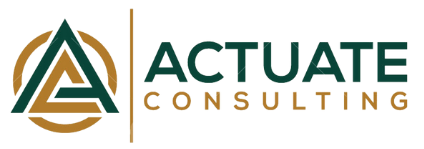Turning Conflict into Collaboration: DISC and the Art of Peacekeeping
When Melissa was promoted to team manager at a growing marketing agency, she expected creative energy, fast-paced strategy meetings, and innovative results. What she didn’t expect was the amount of tension simmering beneath the surface. Her once-collaborative team had become fragmented—brilliant individuals, yes, but constantly miscommunicating and stepping on each other’s toes.
Her leadership was being tested not by external pressures, but by the inner workings of her own team.
Wake-Up Call: Peacekeeping Isn’t Passive Leadership
Melissa believed that being “hands-off” would empower her team to work independently. She avoided conflict like the plague, hoping problems would resolve themselves. Instead, the friction worsened.
Team meetings grew quieter. Slack messages turned passive-aggressive. And productivity dropped as people began working in silos.
Her wake-up call came during a missed deadline that cost the agency a high-profile client. That’s when she realized: avoiding conflict wasn’t keeping the peace—it was quietly breaking her team apart.

The Training Shift: Using DISC to Understand, Not Judge
Enrolling in leadership training centered around the DISC assessment was the turning point. For the first time, Melissa learned to see her team through a behavioral lens:
⚠️ John, the dominant “D” type, thrived on action and quick decisions but frustrated others with his blunt tone.
⚠️ Samantha, an “S” personality, craved stability and felt constantly overwhelmed by change.
⚠️ Luis, a high “C”, was detail-oriented and analytical, but often delayed progress waiting for perfection.
Melissa discovered her own DISC style, too: a high “I” – influential and people-oriented, but conflict-averse.
With these insights, Melissa stopped labeling behaviors as “difficult” and started understanding them as natural tendencies. The training taught her how to adapt her communication style to each team member—and more importantly, how to facilitate conversations that brought understanding, not blame.
The Results: From Conflict to Collaboration
Armed with her DISC training, Melissa began scheduling one-on-one feedback sessions tailored to each style. She ran a team workshop to explain DISC profiles and opened a discussion about communication preferences. The team was hesitant at first—but gradually, walls came down.
They laughed at how accurate the descriptions were. They acknowledged past frustrations. And they created a shared language to navigate future tensions.
Today, Melissa’s team doesn’t avoid conflict—they embrace it constructively. Disagreements still happen, but they lead to deeper understanding, clearer roles, and better decisions.
Their productivity is up. Their morale is high. And their trust in Melissa has never been stronger.
Are workplace tensions slowing your team down?
Discover how DISC training can turn conflict into collaboration and elevate your leadership.
👉 Book a free DISC workshop consultation today.

Looking forward to helping you step into your full leadership potential.
Best regards,

Checree Bryant
CEO Actuate Consulting






